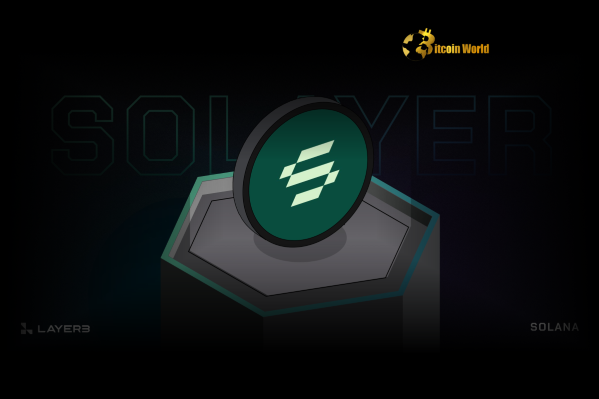BitcoinWorld

Alarming ChatGPT Privacy Breach: Public AI Chats Indexed by Google
In an era where artificial intelligence increasingly intertwines with our daily lives, a startling discovery has cast a spotlight on the often-overlooked aspects of digital privacy. It turns out that some of your seemingly private conversations with ChatGPT, when shared, are not remaining as discreet as you might assume. A simple search on Google or Bing, filtered to include URLs from the ChatGPT domain, can unveil a bizarre and sometimes unsettling window into the minds of strangers. This unexpected phenomenon highlights a significant ChatGPT privacy concern that every user should be aware of.
Unveiling Public AI Chats: What’s Being Exposed?
Imagine the surprise of finding someone’s personal queries about renovating their bathroom, their attempts to grasp complex astrophysics, or even their recipe ideas, all laid bare on a public search engine. These aren’t just abstract data points; they are intimate glimpses into individual lives. The shared links to ChatGPT conversations offer a peculiar insight into human curiosity and vulnerability.
The original intent behind ChatGPT’s sharing feature was likely for users to easily share interesting or helpful conversations with friends or colleagues. Users must deliberately click a ‘share’ button on their chat interface and then a ‘create link’ button to generate a shareable URL. OpenAI, the developer of ChatGPT, states that ‘your name, custom instructions, and any messages you add after sharing stay private.’ However, the reality of search engine indexing paints a different picture, leading to unintended public AI chats being discoverable by anyone.
Examples of Exposed Data:
- Personal Career Details: One user’s attempt to rewrite their resume for a specific job application, complete with enough details to potentially locate their LinkedIn profile, reveals a concerning level of personal information. The irony, as noted, is that the individual seemingly did not get the job, making the public exposure even more poignant.
- Sensitive Inquiries: Some conversations delve into highly sensitive or controversial topics, resembling discussions found on forums known for extreme viewpoints. This underscores the potential for highly personal or even controversial beliefs to become publicly associated with an individual, even if indirectly.
- Absurd and Trolling Interactions: While some shared chats are mundane, others reveal users engaging in increasingly absurd or trollish questions, such as asking if one can microwave a metal fork (the answer is a resounding ‘no’). These interactions, though humorous to some, still contribute to a public digital footprint that users likely never intended to create. One memorable example cited was an AI-generated guide titled ‘How to Use a Microwave Without Summoning Satan: A Beginner’s Guide.’
The Role of Google Indexing in Data Exposure
The core of this issue lies in how search engines, particularly Google, perform Google indexing. When a web page is created and made accessible on the internet, search engine crawlers discover and add it to their index, making it searchable. While OpenAI’s sharing mechanism creates a unique URL, users likely do not anticipate that these links, even if shared privately, could become part of the public index.
There’s a subtle but critical distinction here compared to other cloud services. For instance, when people share public links to files from Google Drive with settings like ‘Anyone with link can view,’ Google generally does not surface these links in search results unless they have been explicitly posted or linked on other public, trusted websites. This implies a level of gatekeeping or discernment.
User Expectation vs. Indexing Reality
The discrepancy between what users expect when sharing a ChatGPT link and what actually happens with search engine indexing is a significant point of concern. Here’s a quick comparison:
| Aspect | User Expectation (when sharing ChatGPT link) | Indexing Reality (for shared ChatGPT links) |
|---|---|---|
| Audience | Only those with the direct link. | Anyone using a search engine, potentially globally. |
| Privacy Statement | OpenAI states name, custom instructions, and new messages stay private. | The entire shared chat log becomes publicly discoverable. |
| Discoverability | Low, unless explicitly published elsewhere. | High, if the link is discovered by search engine crawlers. |
| Control | User controls who receives the link. | Search engines control indexing once link is public. |
OpenAI did not provide comment on this matter prior to the original publication. A Google spokesperson clarified their position, stating, ‘Neither Google nor any other search engine controls what pages are made public on the web. Publishers of these pages have full control over whether they are indexed by search engines.’ This statement places the onus on the content publisher – in this case, effectively OpenAI for hosting the shareable content, and indirectly, the user for making the content shareable.
The Alarming Reality of User Data Exposure
The implications of such widespread user data exposure are profound. While a single chat about astrophysics might seem harmless, the cumulative effect of many such public conversations can paint a detailed, potentially compromising, picture of an individual. This isn’t just about embarrassing queries; it’s about the inadvertent leakage of personally identifiable information (PII) or sensitive personal contexts.
For instance, if someone shares a chat where they discuss specific health symptoms, financial questions, or unique personal circumstances, and that chat is indexed, it becomes a permanent part of their digital footprint, accessible to anyone with the right search query. This can lead to:
- Identity Tracing: As seen with the LinkedIn example, seemingly innocuous details can be pieced together to identify individuals.
- Privacy Breaches: Sensitive personal thoughts, problems, or professional queries become public knowledge.
- Reputational Damage: Conversations, even those meant as jokes or experiments, can be taken out of context and used to form negative perceptions.
- Security Risks: While direct financial data might not be in the chats, patterns of behavior or personal vulnerabilities could be exploited by malicious actors.
This situation underscores the critical need for users to understand the full scope of what ‘sharing’ means in the digital realm, especially when dealing with AI platforms that process vast amounts of personal text.
Safeguarding Your AI Data Security: Practical Steps
Given the revelations about Google indexing of shared ChatGPT conversations, it’s more important than ever for users to adopt a proactive approach to their AI data security. While AI platforms continue to evolve, the responsibility for personal data protection largely falls on the user.
Actionable Advice for Protecting Your AI Interactions:
- Be Mindful of the ‘Share’ Button: Treat the ‘share’ feature on ChatGPT (and similar AI platforms) as a public publishing tool. Assume that anything you share could potentially be indexed by search engines and become publicly accessible. Only share conversations that you are comfortable with being seen by anyone.
- Review Content Before Sharing: Before clicking ‘create link,’ carefully review the entire conversation for any personal details, sensitive information, or anything that could be used to identify you or others. Edit or delete parts of the conversation if necessary.
- Avoid Including PII: Refrain from inputting personally identifiable information (PII) such as your full name, address, phone number, specific job details, or unique personal circumstances into AI conversations, especially if there’s any chance you might share them.
- Understand Platform Privacy Policies: Take the time to read and understand the privacy policies and terms of service for any AI tool you use. Look for specifics on data retention, sharing, and indexing practices.
- Regularly Check Your Digital Footprint: Periodically search for your name or unique online identifiers on search engines to see what information about you is publicly available. This includes searching for ‘site:chat.openai.com [your name/keywords]’ if you’ve ever shared chats.
- Consider Anonymity Tools: For highly sensitive inquiries, consider using AI tools that prioritize privacy or offer anonymous modes, if available.
Beyond ChatGPT: Broader Implications for AI Data Security
This incident with ChatGPT’s shared conversations serves as a potent reminder of the broader challenges in AI data security. As AI models become more sophisticated and integrated into various applications, the volume of sensitive data they process will only increase. This necessitates a robust framework for data governance, not just from the AI developers but also from regulatory bodies and users themselves.
The evolving landscape of digital privacy demands clearer communication from technology companies about how user-generated content is handled, especially when sharing features are involved. It also calls for greater awareness among users about the implications of their digital actions. The lines between ‘private’ and ‘public’ are constantly blurring in the digital world, and incidents like this highlight the need for continuous vigilance and adaptation.
Bitcoin World Disrupt 2025: A Glimpse into the Future of Tech
While navigating the complexities of AI privacy, the broader tech world continues its rapid evolution. Events like Bitcoin World Disrupt 2025 offer a vital platform for industry leaders to discuss these very challenges and innovations. Tech and VC heavyweights, including representatives from Netflix, ElevenLabs, Wayve, and Sequoia Capital, are slated to join the Disrupt 2025 agenda. These experts will deliver insights crucial for startup growth and sharpening the edge in competitive markets.
Don’t miss the 20th anniversary of Bitcoin World Disrupt, an opportunity to learn from the top voices in technology. The event, scheduled for October 27-29, 2025, in San Francisco, promises to be a nexus for innovation and networking. Attendees can secure tickets now and save up to $675 before prices rise. For businesses and brands, Disrupt 2025 also offers a unique opportunity to connect with over 10,000 tech and VC leaders, amplify reach, spark real connections, and lead the innovation charge by securing exhibit space.
Conclusion: Navigating the Digital Frontier with Awareness
The revelation that public AI chats from ChatGPT are being indexed by search engines like Google is a significant wake-up call regarding digital privacy. It underscores that even seemingly innocuous actions, like clicking a ‘share’ button, can have unforeseen consequences, leading to unwanted user data exposure. While AI platforms provide incredible utility, they also demand a higher level of awareness and caution from their users.
Protecting your ChatGPT privacy and ensuring robust AI data security in the age of generative AI is a shared responsibility. Users must be diligent about what they share and how they interact with these powerful tools, while developers must continue to innovate with user privacy at the forefront. By understanding the mechanisms of Google indexing and adopting proactive privacy measures, we can better navigate the complex digital landscape and safeguard our personal information in an increasingly AI-driven world.
To learn more about the latest AI data security trends, explore our article on key developments shaping AI features and institutional adoption.
This post Alarming ChatGPT Privacy Breach: Public AI Chats Indexed by Google first appeared on BitcoinWorld and is written by Editorial Team





